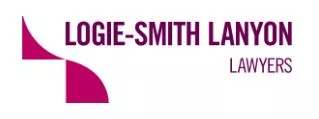Halfway through the year, it is timely to do a bit of a "snapshot update" giving some quick reminders about recent changes to consumer laws in Australia.
Australian Consumer Law – consumer guarantees – increase in consumer thresholds and consumer protections
From 1 July 2021, more businesses will have the benefit of the consumer guarantee protections found in the Australian Consumer Law (ACL) with the monetary threshold for contracts enjoying the benefit of the consumer guarantee protections increasing from $40,000 to $100,000 even though goods and services acquired are not ordinarily for personal, domestic or household use.
Legislation pre-July 2021
Before 1 July 2021 'consumers' to whom the protections of the consumer guarantees were afforded were any person or business who acquired goods or services:
- for $40 000 or less; or
- which are ordinarily acquired for personal, domestic or household use or consumption; or
- consisting of a vehicle or trailer acquired principally for goods transport on public roads.
The new legislation effective from July 2021
The changes to the definition of 'consumer' in the ACL and Australian Securities and Investments Commission Act 2001 (ASIC Act) are made by way of Treasury Laws Amendment (Acquisition as Consumer—Financial Thresholds) Regulations 2020 (Regulations).
Under the new Regulations, the $40,000 threshold in both the ACL
and ASIC Act has been extended to any goods or services acquired
for $100,000 or less, regardless of the intended uses of the goods
or services.
The definition of 'consumer' in the ACL will continue to exclude goods acquired by a business for re-supply or for the purpose of using up or transforming the goods.
The scope of financial services protected by the ASIC Act will also be significantly increased under this changed threshold (note, the ASIC Act provisions largely mirror the ACL but apply specifically to the provision of financial services).
Manufacturers' liability, misleading and deceptive conduct, unconscionable conduct, unfair contract terms, and product safety standards will remain unaffected by this threshold change.
Consumer law for businesses selling to NSW customers – NSW Fair Trading Act – terms that may substantially prejudice the interests of the consumer – reminder that the grace period has ended
With the six-month "grace" period to allow for businesses to update their contract terms well and truly over (ended on 1 January 2021), we remind you that changes made to the Fair Trading Act 1987 (NSW) (Act) in respect of substantially prejudicial contract terms with consumers are in full effect.
Under section 47A of the Act, a supplier must, before supplying a consumer with goods or services, take reasonable steps to ensure the consumer is aware of the substance and effect of any term or condition relating to the supply of the goods or services that may substantially prejudice the interests of the consumer.
Under section 47B of the Act, intermediaries must take reasonable steps to make customers aware of any commission or referral arrangements where the business receives a financial incentive from another supplier.
Who does this apply to?
This applies to suppliers who, in the course of a business, supply goods or services into NSW. A consumer has the same meaning as provided in section 3 of the ACL (see article above).
How and when does this apply?
A term or condition relating to the supply of goods or services to a consumer may substantially prejudice the interests of the consumer if:
- the term excludes the liability of the supplier;
- the term provides that the consumer is liable for damage to goods that are delivered;
- the term permits the supplier to provide data about the consumer, or data provided by the consumer, to a third party in a form that may enable the third party to identify the consumer; or
- the term requires the consumer to pay an exit fee, a balloon payment or other similar payment.
Notably, the disclosure must be made before the supply occurs or the transaction is finalised.
Disclosure requires the supplier to take "reasonable
steps" to ensure the consumer is aware of the 'substance
and effect' of such term or condition.
There are no exemptions from either disclosure requirement.
NSW Fair Trading has provided guidance stating that 'reasonable steps' means steps that are appropriate in the circumstances and are sufficient to make customers aware of any terms and conditions or commission or referral arrangements.
NSW Fair Trading takes the view that the best way to disclose is to be clear, upfront and automatic. An upfront disclosure doesn't require the consumer to seek out the information themselves, with NSW Fair Trading commenting that "Early disclosure is a proactive step that can lead to less complaints down the road".
It is intended that an automatic disclosure is a standard part of each transaction. In examples of how to do this, NSW Fair Trading mentions:
- including a short cover page to a long form agreement to make the consumer aware of the substantially prejudicial term;
- providing information in concise paragraphs at key times for the customer;
- for online terms, having a 'pop-up' box at the point of sign-up to alert the consumer to any term which may substantially prejudice the consumer's interest (including giving information in a scrollable text box);
- using illustrations, icons or comics to explain relevant information.
The guidance suggests that it is best to confirm your business has taken reasonable steps to alert the customer to a substantially prejudicial term by checking with the customer "directly" (eg: initialling a contract or checking a box on a web-form).
For commission or referral arrangements, some of the steps a business could take to alert the consumer to the financial incentive may include:
- providing the customer with the relevant disclosure on its quotations;
- disclosing relevant information online on the same page as the description of the product or service; or
- having the disclosure appear as a pop-up when online.
Unconscionable conduct under the ACL – case law update
On 19 March 2021, in Australian Competition and Consumer Commission v Quantum Housing Group Pty Ltd [2021] FCAFC 40, the Full Court of the Federal Court of Australia found that while exploitation of some vulnerability or disadvantage will often be a feature of unconscionable conduct, such conduct is not necessary in order to establish that a party has engaged in 'statutory unconscionable conduct'.
The ACL prohibits unconscionable conduct in trade or commerce in two ways:
- the prohibition of unconscionable conduct "within the meaning of the 'unwritten law'". This is often referred to as 'equitable unconscionability' (section 20 of the ACL); or
- the prohibition that parties, in connection with the supply or acquisition of goods or services, engage in conduct that is "in all the circumstances" unconscionable. This is often referred to as 'statutory unconscionable conduct' (section 21 of the ACL).
'Equitable unconscionability' requires the wrongdoer to knowingly exploit or take advantage of some special vulnerability or disadvantage of the other party. Usually this means that sophisticated commercial parties do not benefit from unconscionable conduct relief as they are taken by the Court to have the experience and means to protect and advance their own interests.
For some time there has been a question whether the legal requirements for equitable unconscionable conduct are the same statutory unconscionable conduct.
The Court answered this question in this case by finding that it is not necessary for a party to have exploited some special vulnerability or disadvantage for it to have engaged in statutory unconscionable conduct, even though the relevant investors were sophisticated commercial parties.
In assessing whether a party has engaged in statutory unconscionable conduct, strikingly the Court found that:
"Conduct by a commercial entity which, as here, systematically misuses its superior bargaining position by dishonestly misleading its counterparties and pressuring them by unjustified and unnecessary commercial requirements in a way that reflects a dishonest lack of good faith in undermining bargains previously reached in order to extract surreptitious and undisclosed financial benefits is against and offends an Australian business conscience. None of this is idiosyncratic or personal. It is an offence to honesty (upon which the ACL, the common law and equity are based)......." [at 96]
Whether a party's conduct has sufficiently departed from the norms of acceptable commercial behaviour, so as to offend conscience, includes the wrongdoer acting in a way that is:
- systematically dishonest, entirely in bad faith in undermining a bargain, involving misrepresentation, commercial bullying or pressure and sharp practice; or
- misusing a superior bargaining position, behaving contrary to an industry code, using significant market power in a way to extract an undisclosed benefit in a manner disclosed above.
This case shows that it is not just vulnerable or disadvantaged parties that are protected by the provisions against unconscionable conduct, commercially sophisticated commercial entities can also bring a claim under section 21 of the ACL if they have suffered loss as a result of another party's unconscionable conduct.
This decision is also likely to have implications for the financial services industry, as there is an equivalent provision under the ASIC Act that prohibits unconscionable conduct in relation to financial services.
Subsequently this case has been applied by the New South Wales District Court in Insurance Australia Ltd v Holden [2021] NSWDC 142.


